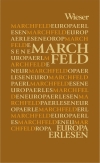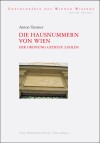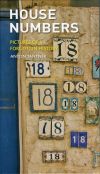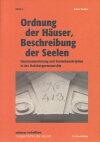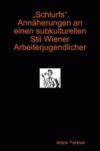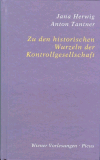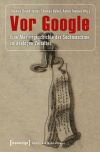Vorankündigung: Englische Übersetzung des Hausnummern-Buchs erscheint im Oktober
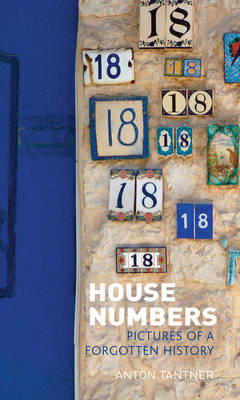 Mein beim Jonas Verlag erschienenes Hausnummern-Buch ist mittlerweile vergriffen, erfreulicherweise wird aber ab Herbst eine englische Übersetzung einer erweiterten und aktualisierten Fassung davon einem internationalen Publikum zugänglich sein. Sie erscheint bei Reaktion Books, und nein, das ist nicht etwa der Hausverlag von C. Schmitt, de Maistre, Bonald, Edmund Burke und KonsortInnen, sondern ein kulturwissenschaftlicher Verlag, der so schöne Bücher wie Dumplings. A Global History oder Hot Dog. A Global History im Angebot hat. Auch schön, dass ein anderer Burke, nämlich Peter Burke ein endorsement für das Buch verfasst hat. In den USA wird das Buch von der University of Chicago Press vertrieben.
Mein beim Jonas Verlag erschienenes Hausnummern-Buch ist mittlerweile vergriffen, erfreulicherweise wird aber ab Herbst eine englische Übersetzung einer erweiterten und aktualisierten Fassung davon einem internationalen Publikum zugänglich sein. Sie erscheint bei Reaktion Books, und nein, das ist nicht etwa der Hausverlag von C. Schmitt, de Maistre, Bonald, Edmund Burke und KonsortInnen, sondern ein kulturwissenschaftlicher Verlag, der so schöne Bücher wie Dumplings. A Global History oder Hot Dog. A Global History im Angebot hat. Auch schön, dass ein anderer Burke, nämlich Peter Burke ein endorsement für das Buch verfasst hat. In den USA wird das Buch von der University of Chicago Press vertrieben.Tantner, Anton: House Numbers. Pictures of a Forgotten History. London: Reaktion Books, erscheint im Oktober 2015.
ISBN 9781780235189, £12.95
Verlags-Info
House numbers are small things that appear quietly on the walls, gates and porches of our homes and places of work. They seem to have come from nowhere and are now taken for granted in everyday life. But house numbers have their own history – one that is retrieved, assembled and presented here, for the first time, in vivid images from around the world.
House numbers started their lives in a grey area between the military, the tax authorities and early police forces. Anton Tantner’s engaging, intriguingly quirky book is a chronicle of the house number, from its introduction in European towns in the eighteenth century through the spread of the numbering system in the nineteenth century to its global adoption today. It also reveals that there was often opposition to this convention – those living at their allotted addresses have not always been too happy about their houses being given numbers.
House Numbers is full of original research and is extensively illustrated, with photographs showing historic house numbers and addresses, from Nought, Strand-on-the-Green in London to 1819 Ruston, Louisiana. Its narrative will alter the way you walk around a city, as these seemingly minor, insignificant aspects of our houses and streets become links to a broad and fascinating history.
Peter Burke, Emeritus Professor of Cultural History, University of Cambridge:
Sherlock Holmes famously observed that small details are often valuable clues to something larger. In similar fashion Anton Tantner, a historical sleuth, shows that the history of house numbers sheds more light on the Enlightenment as well as on the rise of the surveillance state.
adresscomptoir -
Hausnummerierung - Do, 11. Jun. 2015, 11:24
